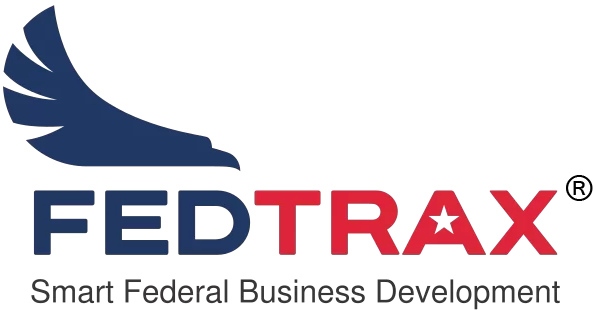
When the world is filled with apples, how can your business become an orange? In the universe of modern business, getting your name out as a recognizable and trusted expert within your industry is the main task facing CEOs, CMOs, and Vice Presidents of Sales or Business Development. Standing out in a world of sameness means coming up with a true competitive advantage and exploiting it for the favor of your company. That’s easier said than done, especially in commoditized markets like IT services or 3rd party Logistics, and is one of the most misunderstood aspects of business strategy today.
But what if you could not only stand alone in your industry, but revolutionize it with new product, process or practice that would change the market and set a new standard that others were forced to mimic in order to survive? That’s creating your market game changer, and that value proposition could change your business and your life in ways you never thought possible.
True Competitive Advantage
What do I mean by true competitive advantage? I mean something that your business has or does that benefits customers enough that they’re willing to pay for it that no one else can claim. That’s it, but it says a lot. Think about that definition and look what it leaves out that many CEOs have as their primary go to market message.
Our Quality is the best in the industry. Sorry, your competitors all say this too. This is not to say ignore this fact as a competitive advantage if you can prove it (before new prospects have experienced it as customers), and the only way to prove it is with 3rd party credibility sources—awards, trade publication spotlight articles, or lots of heavy-hitting customer testimonials.
We have the best people in the business. Strike two, Casey. The others guys aren’t out there saying, “Well, our people are sort of second rate, but we are the cheapest!” In extremely rare cases competitive advantage can be a person, but only one that is so well regarded in the industry that your organizational excellence becomes known through association, such as Johns Hopkins Hospital having on staff the world famous neurosurgeon Ben Carson. Most businesses don’t have that luxury.
These types of things may be absolutely true and you believe them deeply, but to a new prospect they are literally meaningless. They won’t win you business with consumers, B2B, or the Government. If you’re not saying these things, you don’t even get a ticket to the dance.
Things that might be a competitive advantage are a business process that no one else uses, perhaps that is trademarked or patented, that provides extra value to the client that she’ll pay for. It can be a proprietary software program your firm has developed that offers something that no others on the market can, or even a single-source relationship dictated by a contract (“the official _ of the National Football League”).
Let’s cut to the quick on what customers are willing to pay for. They are willing to pay for something that saves or makes them money, dramatically saves time (which is money), or reduces stress or worry, something I like to call an emotional dividend. No matter what else you may think are the reasons they buy from you, they are mentally tying those surface benefits to one of those three things: money, time, or emotional dividend.
The Frackers
Recently I finished a book called The Frackers, about the new oil and gas wildcatters that have literally revolutionized the US Energy industry. You may have heard about this and, like all industrial revolutions, the benefits of the change are not without massive controversy. Pioneers were people like George Mitchell of Mitchell Energy, who over a period of 2 decades perfected the hydraulic fracturing (fracking) method of eliciting natural gas from the ground in heretofore dry geological areas. Others like Robert Hauptfuhrer and Texas-based Oryx Energy that developed horizontal drilling, or Lebanese immigrant Charif Souki of Cheniere Energy, who dreamed big and ultimately began the unthinkable, exporting natural gas from the US to other countries, all played a key role. The book chronicles the rise and sometimes fall of these tycoons that gave the United States the capacity for total energy independence from the Middle East, with environmental concerns and politics being the final barriers to that reality.
So here is the cool part about this industry. At a time when the market was in the tank and the prevailing wisdom was telling investors to get out of the Energy business, these people had the vision, guts and perhaps streak of insanity to take big risks for big payoffs using the engine of American capitalism. And it worked.
Questions Create Vision
This article is about creating competitive advantage and, just maybe, developing your own market game changer to explode your business. This may or may not be reality due to the nature of your business, the level and limitations of leadership (including you), or external factors, but it starts by seeking different answers. To get different answers, you need to ask different questions. Here are some new questions that just might pave the way to your company’s market game changer.
What outcomes do we provide for our customers?
When you ask what business you’re in, you get answers limited to what you do (“I’m in the transportation business” or “I sell IT services”). When you ask what outcomes you provide, it steers your mind into what those things do to provide value (“I accelerate the speed of my customers’ delivery cycle” or “I safely and securely harness my customers’ data to decrease their operational expenses”).
What outcomes should we provide for our customers?
Thinking in terms of what you actually provide that they pay for can get you thinking of value you should be providing that you may have not considered before (“I enable my customers to become data experts for their customers”)
What is currently impossible in my industry that would change all the rules if it were possible?
If you want to seriously move the needle on your business, get business coming at you and turn your salespeople into superstar performers, understanding what is a true competitive advantage and developing your market game changer is the difficult yet highly rewarding shift to make.
